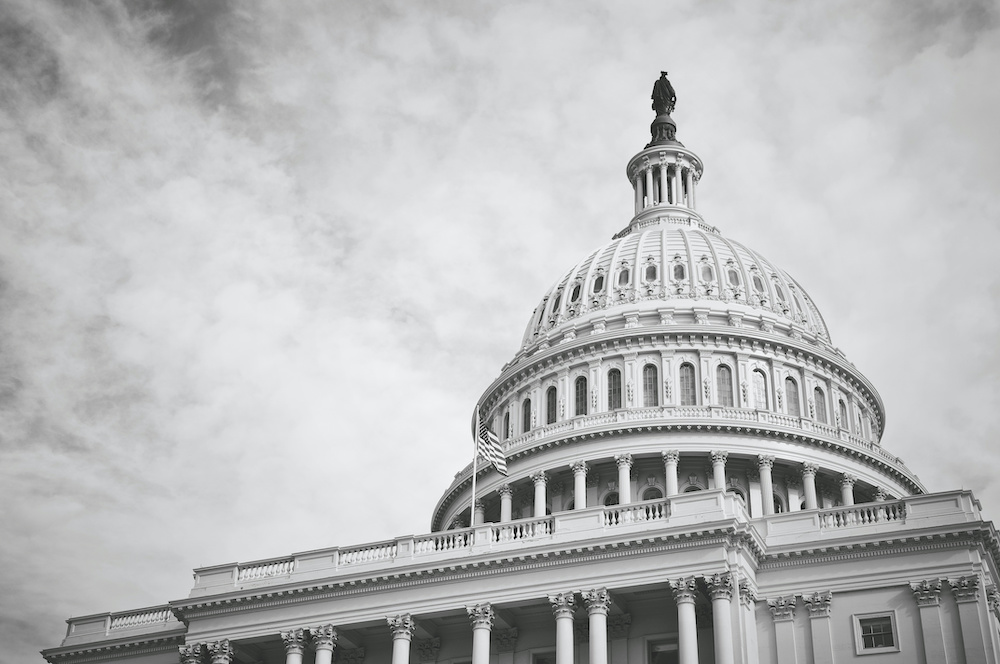
- Details
- By Jenna Kunze
Yesterday, a Congressional committee pushed through legislation to investigate the federal government’s centuries-long Indian boarding school policies, bringing the law one step closer to the House floor.
The bill — the Truth and Healing Commission on Indian Boarding School Policies Act of 2024 —is legislation to investigate, document, and report on the histories of Indian boarding schools, Indian boarding school policies, and long-term impacts on Native communities. It was reintroduced earlier this year by Representatives Sharice Davids (D-KS-03) and Tom Cole (R-OK-04), Co-Chairs of the Congressional Native American Caucus. In February, the bill was referred to three separate committees and one subcommittee to consider provisions that might fall within their respective jurisdictions.
Yesterday, the House Committee on Education & the Workforce was the first to advance the bill out of committee, when they passed it through markup, without substantial changes.
Shawnee Tribal Chief Ben Barnes, who traveled to Washington D.C. to testify in favor of the bill in 2022, told Native News Online that he’s hopeful the bill will see the light of day on the House floor.
“There is still some work remaining to ensure it’s going to vote on the House floor, however this is further than we’ve gotten before.”
If passed, a 10-member commission of former Indian boarding school students and truth and healing experts, appointed by the president, would make recommendations “on actions that the Federal Government can take to adequately hold itself accountable for, and redress and heal, the historical and intergenerational trauma inflicted by the Indian Boarding School Policies,” the bill says. Recommendations would include: protecting unmarked graves, supporting repatriation, and stopping modern-day Indian child removal policies.
The commission would also be empowered to subpoena records from private entities, including churches, that operated schools or institutions intended to assimilate Native youth, as well as government records needed to locate and identify children who attended boarding schools, their tribal affiliations, and unmarked graves. The subpoena power would give the commission a powerful tool that is not available as part of the ongoing investigation of boarding schools by the Department of Interior.
"I would not be here if not for the resilience of my ancestors and those who came before me — including my grandparents, who are survivors of federal Indian Boarding Schools,” said Congresswoman Davids in a statement. “I am glad my colleagues came together today to advance the establishment of a Truth and Healing Commission, bringing survivors, federal partners, and Tribal leaders to the table to fully investigate what happened to our relatives and work towards a brighter path for the next seven generations.”
More Stories Like This
Native News Weekly (August 25, 2024): D.C. BriefsUS Presidents in Their Own Words Concerning American Indians
DHS Secretary Noem Tells Tribes ICE Does Not Target Native Americans
Native News Online Marks 15 Years of Warrior Journalism
I’m a Minneapolis Postal Worker. This Is What I Saw.
Help us defend tribal sovereignty.
At Native News Online, our mission is rooted in telling the stories that strengthen sovereignty and uplift Indigenous voices — not just at year’s end, but every single day.
Because of your generosity last year, we were able to keep our reporters on the ground in tribal communities, at national gatherings and in the halls of Congress — covering the issues that matter most to Indian Country: sovereignty, culture, education, health and economic opportunity.
That support sustained us through a tough year in 2025. Now, as we look to the year ahead, we need your help right now to ensure warrior journalism remains strong — reporting that defends tribal sovereignty, amplifies Native truth, and holds power accountable.
 The stakes couldn't be higher. Your support keeps Native voices heard, Native stories told and Native sovereignty defended.
The stakes couldn't be higher. Your support keeps Native voices heard, Native stories told and Native sovereignty defended.
Stand with Warrior Journalism today.
Levi Rickert (Potawatomi), Editor & Publisher


